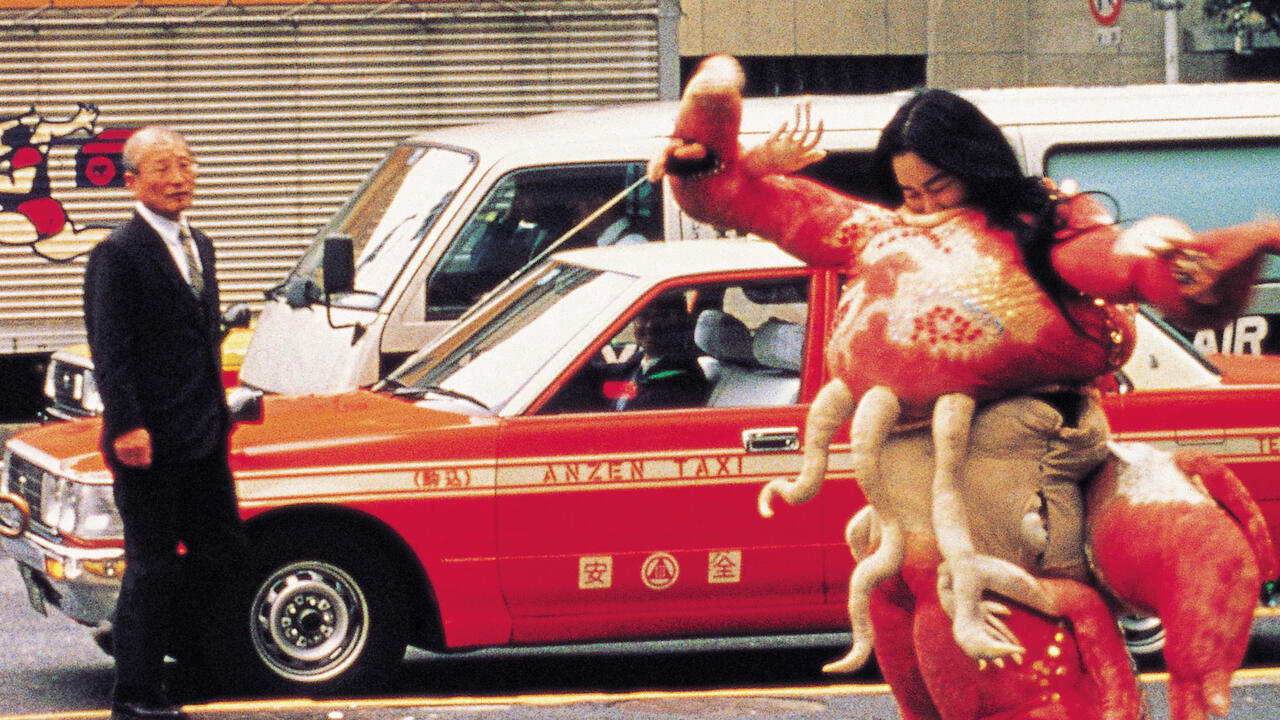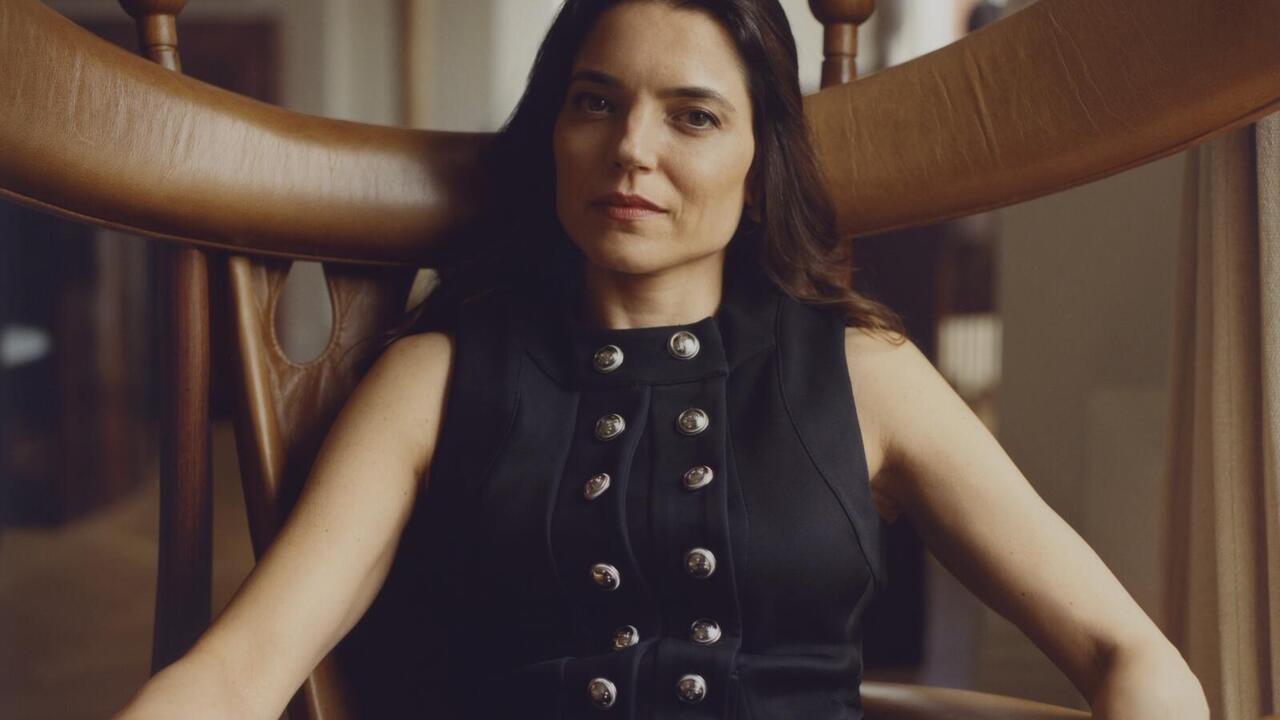Peter Fend
Peter Fend's new installation, 'Eurasian Scenario', once again finds the artist playing the socio-cultural chimera: spouting fire all the while, Fend comes off as activist, pundit, craftsman, conceptualist, realist, fantasist, bad-boy artiste and mad scientist all rolled into one. While the long running love/hate relationship between Fend and the worlds of art and science has undeniably produced practical wonders and expressive triumphs, his path has also been littered with its fair share of futile gestures: gestures which seem all the more empty by virtue of their unique combination of almost comical grandiosity and achingly earnest utilitarian ambition. 'Eurasian Scenario', like many of his earlier projects, treads the slippery slopes between critique and activism, raising a whole number of awkward questions, not least whether what he does can really be called science, or for that matter art? Whatever it is, it turns out to be as interesting for its failings as for its successes.
Carrying on with a grand plan for environmentally-aware global construction projects in the form of his Ocean Earth Development Corporation, Fend makes work in the cause of what he calls 'a strategy to change primary production in order to assure clean air and water.' His tools for communicating this strategy - maps, models and piles of dirt fashioned into crude topographical silhouettes - make the case for rerouting aquifiers, reconstructing dams, diverting rivers and reclaiming polluted land from the North Sea to the Gobi Desert. Or rather, the involved and frequently fascinating textual material which accompanies the work does. Fend's actual artworks themselves, despite a quite conscious straining for specificity, always end up feeling conspicuously abstracted, spectral - little more than aesthetic exercises, despite the complex sprawl of scientific information that surrounds them.
Of course, it's the tension between these two conditions that defines the whole enterprise. Fend's ambition is to inject artistic creativity into scientific methodology, and vice versa. The thing is, the two have always coexisted in a natural state: Science, in its most elegant procedures and applications, has always been about flights of theoretical imagination and art's awakening to the potential in more rigorous socio-cultural utility is hardly ground-breaking news. When Fend gets the two of them together, however, his well-intentioned efforts at matchmaking somehow feel a bit forced, like a conversation between parties who aren't listening quite closely enough to each other. Not that such communication breakdowns are surprising given the polyglottal din that dominates Fend's conceptual world - this one show embraces the vocabularies of architecture, mechanical and structural engineering, land management, agronomy, oceanography, satellite surveillance, cartography, chemistry, biology, geopolitics and social activism, not to mention text preparation and object-making in two and three dimensions.
Given all this, you can't help wondering if the shuffle in which Fend's work so often seems to get lost isn't at least partly of the artist's own making. An autodidact with a formidable intellect and compelling imagination, Fend has his fingers in one pie and then another, always seeming too conscious of the limitations in a given procedure to commit himself entirely to it. Suspicious of the constraints of the art world, he casts in his lot with the scientists. Uncomfortable with the prosaic demands of the scientific community, he positions himself so he can retain a critical stance toward it. Finally a bit too rigorous for art, a little too loose for science, Fend's work by its very nature seems destined to end up marooned somewhere in between.
The projects are extremely specific in their locations and purposes. Whether detailing the potential for hydroelectric schemes in Tibet, contemplating the consequences of the failure of the Aswan Dam or proposing a scheme for the development of reliable water resources in the Middle East, Fend always provides an ample supply of information explaining the science involved, exposing the larger background issues, and drawing all this out of the works for the viewer. The frustrating thing is how little of it seems to get communicated organically by the pieces themselves. The work in the gallery does have a striking presence: the signifying cadences of cartography are explored in the maps cut, jumbled and pasted on the walls; the canal models read like minimalist sculpture; and there is humour and rough elegance in the hundreds of pounds of rich earth placed in the pristine gallery space. But when located within the generally anti-aesthetic context usually espoused by their maker, the various elements are reduced to little more than dolled-up maquettes, and not particularly successful ones at that; after a while they start to recall nothing so much as high school science fair props which, despite their sincerity, fail to communicate their point in a clear way.
Peter Fend's work provokes ambivalent responses. Everyone agrees that he's a genuinely gifted thinker but, depending on which story you buy, he's either too vibrantly polymathic to settle down and see something entirely through to completion, or he's the subject of a slew of insidious conspiracies designed to foil a program which would make our world a better place if only he was allowed to execute it. What is not in doubt, however, is how very few of his projects have ever been realised outside the gallery. Surely, given his avowed desire to improve our quality of life, his track record for implementation must be taken into consideration when evaluating the success of his work, whether you see it as art, science or whatever. Is it better, like Fend, to fail to realise grand schemes or, like his contemporaries working in more modest ways toward roughly similar goals (Mel Chin, Viet Ngo, Mark Dion, etc.) to achieve small, calculated successes? Only posterity will be the final judge of this. Meanwhile, Fend continues to work and protest, jack of all trades and master of some, though whether the latter truly include 'art' or 'science' in any meaningful sense of the words remains tantalisingly open to debate.















